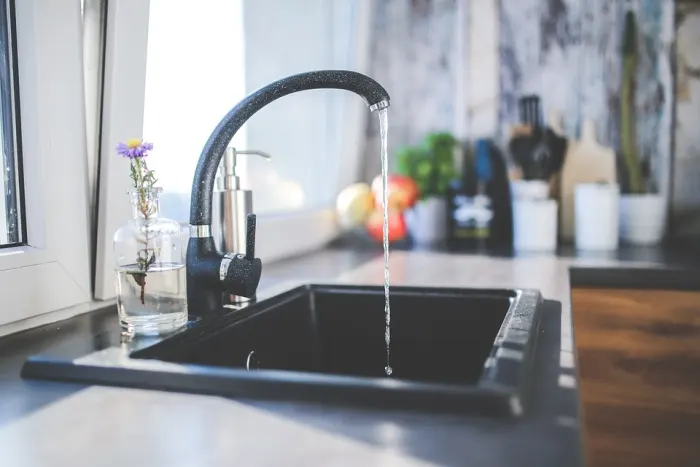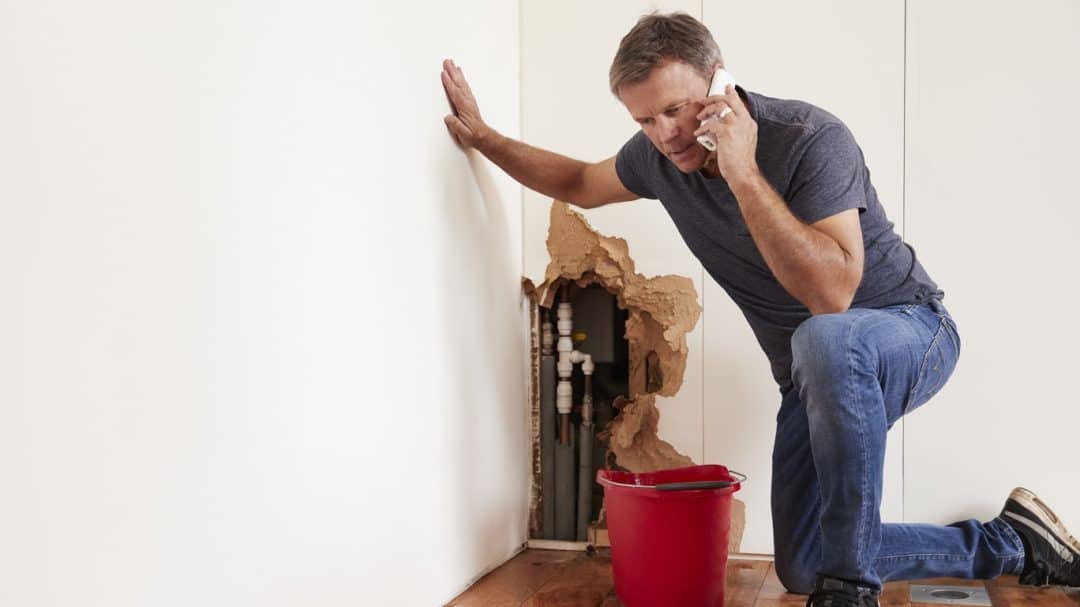Plumbing Sounds You Ought To Know About
Plumbing Sounds You Ought To Know About
Blog Article
Are you currently trying to find insight concerning Diagnose Unwanted Plumbing Noises?

To detect loud plumbing, it is essential to figure out first whether the undesirable noises occur on the system's inlet side-in various other words, when water is turned on-or on the drainpipe side. Sounds on the inlet side have varied reasons: extreme water pressure, used shutoff as well as faucet components, incorrectly linked pumps or other devices, incorrectly positioned pipe fasteners, as well as plumbing runs containing way too many tight bends or various other limitations. Sounds on the drain side usually originate from inadequate place or, as with some inlet side sound, a design containing limited bends.
Hissing
Hissing noise that takes place when a tap is opened slightly usually signals extreme water pressure. Consult your neighborhood water company if you believe this issue; it will have the ability to tell you the water stress in your area and can set up a pressurereducing valve on the inbound supply of water pipeline if required.
Various Other Inlet Side Noises
Creaking, squealing, scraping, breaking, as well as tapping normally are caused by the development or contraction of pipelines, generally copper ones supplying hot water. The audios occur as the pipelines slide versus loose bolts or strike neighboring house framework. You can usually pinpoint the place of the trouble if the pipelines are exposed; simply adhere to the noise when the pipelines are making noise. More than likely you will find a loosened pipe wall mount or an area where pipelines lie so near to flooring joists or various other mounting pieces that they clatter against them. Attaching foam pipe insulation around the pipes at the point of get in touch with must treat the trouble. Be sure straps and hangers are protected as well as supply appropriate assistance. Where feasible, pipeline bolts need to be affixed to massive structural components such as structure wall surfaces as opposed to to mounting; doing so lessens the transmission of vibrations from plumbing to surface areas that can amplify and also move them. If affixing bolts to framework is inescapable, wrap pipes with insulation or various other durable product where they speak to bolts, and also sandwich completions of new fasteners between rubber washers when installing them.
Fixing plumbing runs that struggle with flow-restricting tight or many bends is a last resource that should be carried out only after seeking advice from a knowledgeable plumbing contractor. Unfortunately, this circumstance is relatively typical in older residences that might not have actually been constructed with interior plumbing or that have seen several remodels, especially by amateurs.
Chattering or Shrieking
Intense chattering or shrieking that happens when a shutoff or tap is switched on, which normally vanishes when the installation is opened completely, signals loosened or faulty inner components. The option is to change the shutoff or tap with a new one.
Pumps and also devices such as cleaning equipments and also dish washers can move electric motor sound to pipes if they are incorrectly linked. Link such items to plumbing with plastic or rubber hoses-never rigid pipe-to isolate them.
Drain Sound
On the drainpipe side of plumbing, the principal goals are to get rid of surfaces that can be struck by falling or hurrying water and also to shield pipelines to consist of inevitable sounds.
In new construction, bath tubs, shower stalls, commodes, as well as wallmounted sinks as well as basins should be set on or versus resistant underlayments to minimize the transmission of noise through them. Water-saving toilets as well as faucets are less loud than traditional designs; install them as opposed to older kinds even if codes in your area still permit making use of older components.
Drainpipes that do not run vertically to the cellar or that branch right into horizontal pipe runs sustained at flooring joists or other framing existing especially troublesome sound troubles. Such pipes are large enough to emit significant resonance; they also bring significant amounts of water, which makes the scenario worse. In brand-new construction, define cast-iron dirt pipes (the big pipes that drain commodes) if you can afford them. Their enormity has much of the sound made by water passing through them. Also, prevent transmitting drainpipes in wall surfaces shown bedrooms as well as areas where people collect. Walls consisting of drainpipes must be soundproofed as was described earlier, making use of double panels of sound-insulating fiberboard and also wallboard. Pipes themselves can be wrapped with unique fiberglass insulation created the purpose; such pipes have an invulnerable plastic skin (sometimes including lead). Outcomes are not constantly acceptable.
Thudding
Thudding noise, commonly accompanied by shivering pipes, when a faucet or home appliance shutoff is switched off is a condition called water hammer. The noise as well as resonance are brought on by the resounding wave of stress in the water, which suddenly has no location to go. Often opening up a shutoff that releases water quickly into a section of piping including a limitation, joint, or tee installation can produce the same condition.
Water hammer can typically be treated by installing fittings called air chambers or shock absorbers in the plumbing to which the problem valves or faucets are linked. These gadgets enable the shock wave produced by the halted circulation of water to dissipate airborne they consist of, which (unlike water) is compressible.
Older plumbing systems might have brief upright areas of capped pipeline behind wall surfaces on tap competes the very same objective; these can at some point loaded with water, lowering or damaging their performance. The treatment is to drain pipes the water supply entirely by turning off the main supply of water valve as well as opening up all taps. After that open up the major supply shutoff and also shut the taps one at a time, starting with the faucet nearest the valve and ending with the one farthest away.
Pipe Down! What to Do About Noisy Water Pipes
Banging
Does it sound like someone's hitting your pipes with a hammer every time you run water? The issue could be a phenomenon called water hammer, which happens when a water valve closes suddenly. You'll often hear it when your washing machine stops filling, for example. The momentum and pressure from the water flowing toward the valve create the shockwave that causes the banging noise when the valve closes suddenly. It might not seem like a big deal, but water hammer can cause damage to your pipes, including leaks and joint damage.
One way to ease water hammer is by installing water hammer arrestors. Your plumber can install them near major valves to help cushion the shock of the water when it suddenly stops or changes direction. You might also need to reduce the water pressure coming into your home with the pressure-reducing valve.
Gurgling
Gurgling sounds typically come from drainpipes. This sound happens when the water can't drain properly, usually when there's a clog in the water pipes. Drain clogs often happen due to hair, grease, soap scum or objects that fall down the drain. They can happen suddenly or build up slowly over time.
You can sometimes clear a clogged drainpipe with a plunger to help force the clog through the pipe. A plumbing snake or an auger can also help break up tough clogs. A common plumbing myth is that chemical drain cleaners are safe and effective, but they often don't work and contain harsh chemicals that can hurt you and your plumbing. If you can't remove the clog with a plunger or snake, it's best to call a plumber to help.
Rattling
Water travels through your pipes with lots of pressure, so the pipes are bound to move a little. Pipes should be secured well to keep them from moving too much when water runs through them. If they're not properly fastened or the fasteners come loose, you might hear them rattling when you run water.
Resecuring the pipes can cut down on the rattling noise and prevent damage to the joints of the water pipes. However, many pipes run behind walls where you can't easily access them. A plumber can help determine if loose fasteners are the cause of the rattling and resecure them if necessary.
Humming
If your pipes sound like they're humming, it's likely a water pressure issue. When the water pressure is high, it can cause the water pipes to vibrate and create a humming sound. High water pressure is more common if you have a well for your water, but it can happen with municipal water as well. High water pressure can damage your plumbing and cause leaks.
If you have a well, check the pressure to ensure it's below 55 pounds per square inch. A plumber can test the pressure for you and help adjust the issue if you're not sure how to do it yourself. If you're connected to the municipal water source, your home likely has a pressure-reducing valve near where the water enters your home. You can adjust the screw in the valve to decrease the pressure, but be careful not to lower it too much.
Squeaking
Squeaking or squealing is another common sound you'll hear in your water pipes. This often happens if small components within the plumbing, such as washers or aerators, become loose, dirty or damaged. When this is the cause, the squeaking sound is usually confined to a certain fixture or area of plumbing. Replaced or repairing the part should solve the noise.
If you can hear the squealing sound everywhere in your home, it could be an issue with water pressure. Buildup in the pipes narrows the space for the water, which can cause squealing as the water tries to squeeze through the pipes. Wear and tear on the plumbing system can also cause whistling or squeaking. These situations typically require a professional plumber to diagnose and repair.
https://www.homeserve.com/en-us/blog/home-improvement/water-pipes-making-noise/

I have been very fascinated by Why is My Home Making Strange Plumbing Noises and I'm hoping you enjoyed reading the new blog post. Those who liked our post please do not forget to share it. We enjoy reading our article about Diagnose Unwanted Plumbing Noises.
Visit My Web Page Report this page